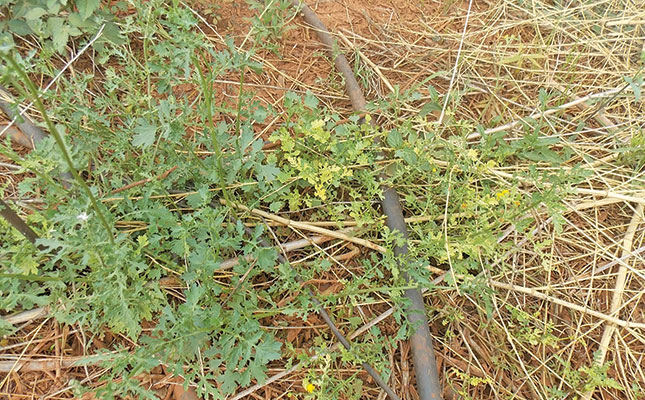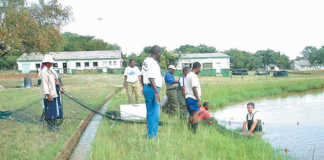
Photo: Bill Kerr
It is more likely to be a threat to those farmers who produce their own seed or who buy open-pollinated seed from non-professional growers. A great deal of chilli and paprika seed is produced in this way.
Pepper mild mottle virus (PMMoV) is probably the virus most commonly spread via seed. A few infected plants in a land can quickly spread the virus when aphids are present.
If you’re unsure of the disease status of the seed, first weigh it, then disinfect it by immersing it in a 10% solution of trisodium phosphate for two hours. Make sure that the compound is fully dissolved in the water before adding the seed.
After removing the seed, rinse it in clean water for half an hour. Change the water a few times during this period if using a bucket, or allow a hose to slowly fill the container to overflowing.
If you don’t intend planting immediately, dry the seed in the shade until it reaches its original dry weight.
The weed factor
A more common source of the virus is infected weeds, yet this is often neglected. But tackling the problem can make a huge difference; I’ve come across farmers who initially allowed broad-leaved weeds to grow near the intended land in the off season, but thereafter destroyed all broad-leaved weeds in the vicinity.
The result was a significant improvement in the crop.
Many weed species host tomato spotted wilt virus (TSWV); they include the common thistle (Sonchus spp), Malva parviflora and wild lettuce (Lactuca serriola). All three can overwinter and are hosts to TSWV.
I once had a major problem with TSWV on capsicums and tomatoes until I started to
notice virus symptoms on several weeds in the off-season carrying the virus over from season to season. After dealing with the weeds, I rarely found a virus-infected plant.
Convincing sceptical farmers
On occasion, I’ve been approached by seedling nurseries to intervene on their behalf and try to convince their clients that the virus that occurred was not from their nursery.
The nursery would correctly declare that if one farmer had a problem, other farmers would also have a problem when planting the same variety from this nursery.
Farmers are sometimes sceptical of this explanation, assuming that the nursery manager would say anything to protect the company.
In such cases, I have visited the farmer and walked through the weedy perimeters of the land, scouting for virus-infected weeds.
I’ve then taken the infected weeds together with healthy weeds of the same species and proved to the farmer where the virus originated. I’ve seen farms with a major virus problem become ‘clean’ after addressing the broad-leaf weed problem in the offseason.
Bill Kerr is a vegetable specialist and a breeder of a range of vegetables.











